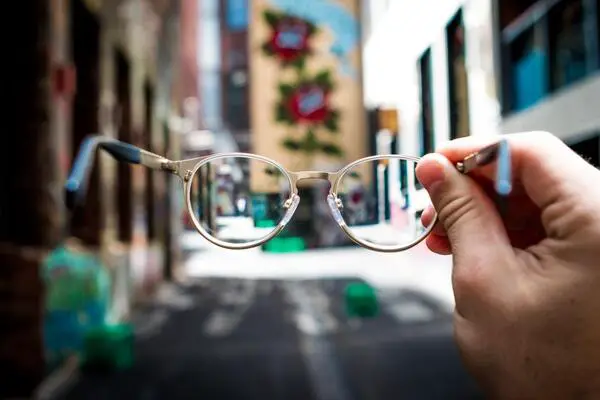
How to Take Better Care of Your Eyesight as You Age
As we age, it's common for our bodies to experience changes that can affect various aspects of our health --- and an area that is especially susceptible to these changes is our eyesight. The risk of developing eye diseases and vision problems increases. It doesn't mean that we are doomed to lose our eyesight.
Taking care of our eyesight is crucial in maintaining good vision and preventing potential issues down the road. This blog post will discuss some practical ways to take better care of your eyesight as you age, so you can continue enjoying clear and healthy vision for years to come.
Wear Blue Light Glasses
Do you spend a considerable amount of time staring at screens? Be it for work or leisure, prolonged screen time can lead to digital eye strain --- a phenomenon that causes symptoms such as headaches, dry eyes, and blurred vision. Yet, there is a solution that can reduce your exposure to harmful blue light emitted by screens.
Blue light glasses have special lenses that block the blue light and protect your eyes. Suppliers like blockbluelight.com offer a wide range of blue light glasses to choose from. Wearing these glasses while using digital devices can significantly reduce the risk of developing eye strain and other related issues.
Regular Eye Exams
Regular eye exams ensure that any potential vision problems are detected early. By visiting an eye care professional annually, you can monitor any changes in your eyesight, update prescriptions as needed, and receive comprehensive screenings for eye conditions such as glaucoma, cataracts, and macular degeneration.
Early detection and treatment of these conditions can significantly slow their progression and preserve your vision. Eye exams can reveal signs of other health issues like diabetes and high blood pressure, enabling timely intervention. Take the time to schedule your annual eye exam --- your future self will thank you.
Wear Sunglasses
Many people associate sunglasses with summertime and protecting their eyes from the sun's glare. But did you know that wearing sunglasses year-round is essential for maintaining good eye health as you age? The sun's UV rays can cause damage to our eyes, leading to conditions like cataracts and macular degeneration.
To protect your eyes from harmful UV rays, remember to wear sunglasses every time you step outside --- even on cloudy days. Look for sunglasses with 100% UV protection and consider getting a pair with large frames that also cover the sides of your eyes.
Eat a Nutrient-Rich Diet
To keep your eyes healthy and functioning properly, maintain a nutrient-rich diet that incorporates foods that are packed with antioxidants, vitamins A, C, and E, and omega-3 fatty acids. Leafy greens, such as spinach and kale, are excellent sources of antioxidants that protect the eyes from harmful free radicals.
Meanwhile, fish like salmon, which is rich in omega-3 fatty acids, may reduce the risk of eye diseases like macular degeneration. Nuts like almonds and walnuts are also good sources of vitamin E, which has been linked to a reduced risk of developing cataracts. Finally, citrus fruits such as oranges and lemons are great sources of vitamin C, which can boost the immune system and improve vision.
Stay Hydrated
While we often associate staying hydrated with skin health, drinking enough water is also crucial for maintaining good eye health. Our eyes are made up of mostly water, and when we don't drink enough, our tear production decreases, leading to dryness and irritation.
Make sure to drink at least eight glasses of water per day to stay adequately hydrated. You can also incorporate fruits and vegetables with high water content into your diet, such as watermelon and cucumbers.
Limit Screen Time
Limiting screen time is essential for reducing eye strain and preserving eyesight as you age. Prolonged exposure to screens can lead to digital eye strain, which manifests through symptoms like dry eyes, blurred vision, and headaches. To mitigate these effects, take regular breaks using the 20-20-20 rule: every 20 minutes, look at something 20 feet away for at least 20 seconds.
Adjust the brightness and contrast of your screens to comfortable levels and use anti-glare screen protectors. When you consciously limit your screen time and take necessary precautions, you can reduce the risk of developing eye strain and maintain good vision.
Manage Health Conditions
Chronic health conditions like diabetes and high blood pressure can have severe impacts on your eyesight. They can increase the risk of developing eye diseases such as diabetic retinopathy, glaucoma, and cataracts.
Managing these conditions through healthy lifestyle choices and following medical advice is crucial for preserving your vision. Regular exercise, maintaining a healthy weight, and monitoring blood sugar levels are some ways to reduce the impact of these conditions on your eyesight.
Taking proactive steps to care for your eyesight as you age is essential for maintaining good vision and overall quality of life. By incorporating habits such as regular eye exams, wearing sunglasses and blue light glasses, eating a nutrient-rich diet, staying hydrated, limiting screen time, and managing chronic health conditions, you can significantly reduce the risk of developing vision problems. Remember, your eyes are an invaluable asset, so prioritize their health to enjoy clear and healthy vision for years to come.